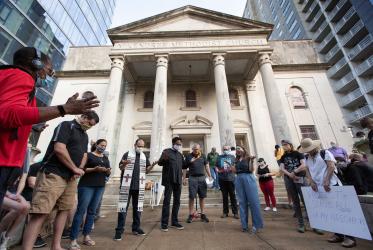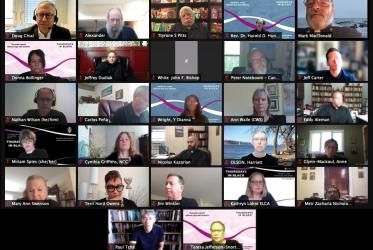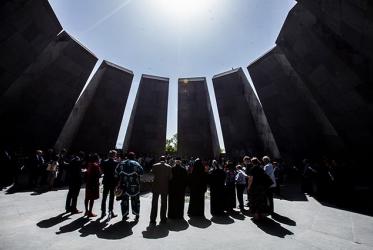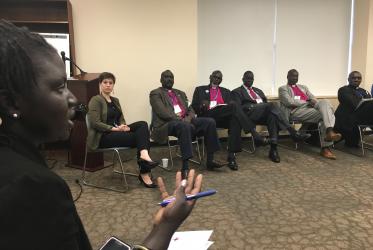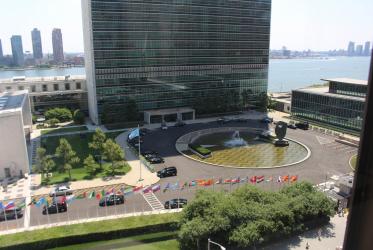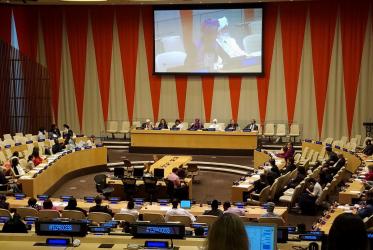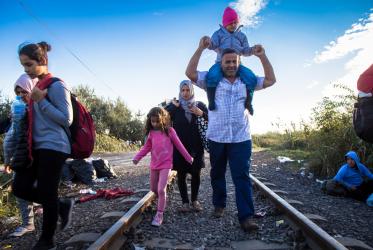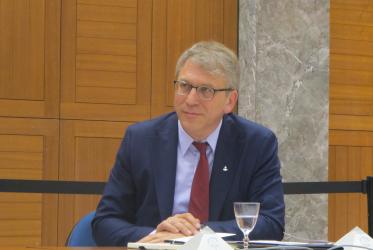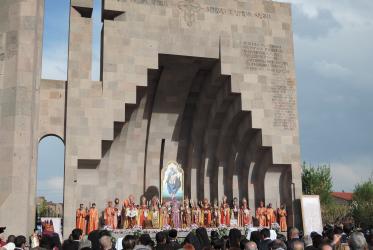Displaying 1 - 20 of 22
15 February 2022
Prayer service dedicates Pan African devotional guide
01 March 2019
Religious organizations speak up on refugee crisis at UN event
29 January 2018
Tveit: Beyond national borders, we are one humanity
23 January 2018
WCC to co-host public event on migration and displacement at UN
17 January 2018
4th Annual Symposium on the Role of Religion and Faith Based Organizations in International Affairs
22 January 2018
United Nations Headquarters, New York
Religion: Way of war or path to peace?
30 June 2016
Religious leaders as agents of peace in the Americas
02 March 2016
